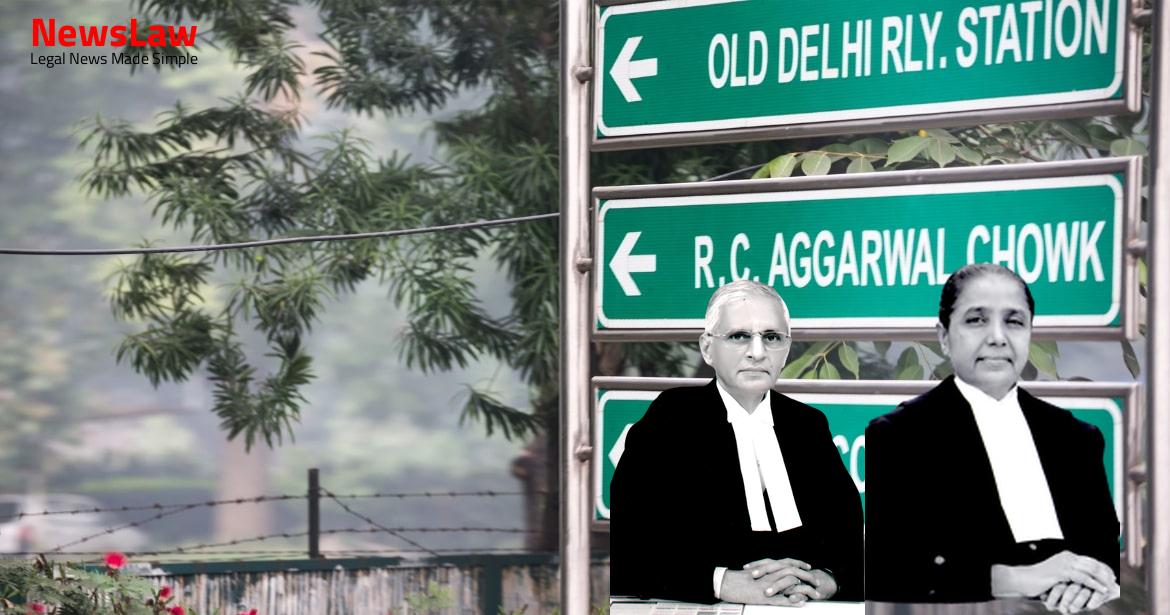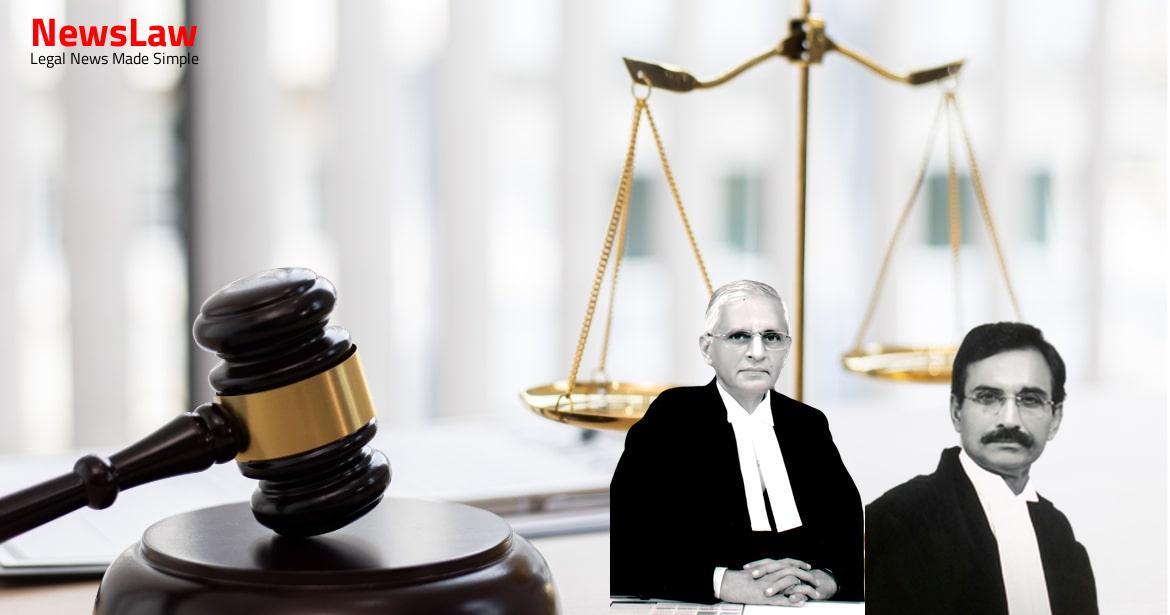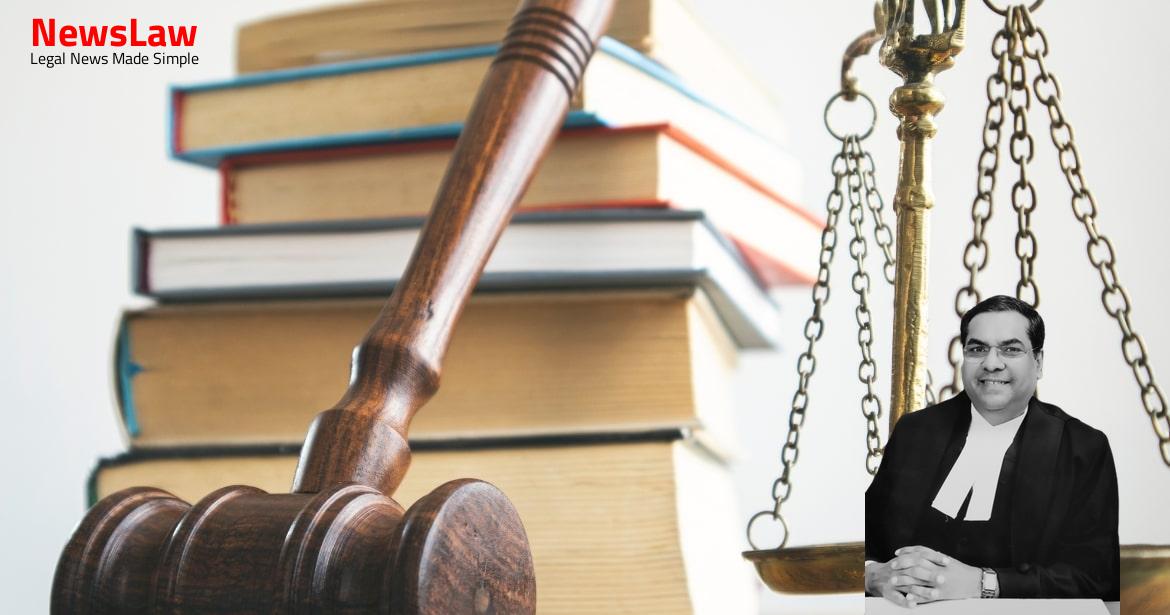Exploring a significant legal case involving Zaveri & Co. Pvt. Ltd. and ACIL, the Supreme Court of India delivered a crucial judgement regarding guarantor liability. This case sheds light on the complexities of insolvency resolution and the responsibilities of guarantors in such situations. Dive into the detailed analysis of this groundbreaking ruling.
Facts
- M/s. Zaveri & Co. Pvt. Ltd. filed I.A. No.11685 of 2023 for intervention.
- ACIL granted a loan of Rs.100 crores to the corporate debtor for a SEZ project.
- Application under Section 7 of the IBC was filed concerning ACIL as the guarantee was not honoured.
- Final resolution plan proposed to pay Rs.135 crores within 15 months to the creditors of the corporate debtor.
- Resolution plan approved on 13 August 2018 by the COC and subsequently by the adjudicating authority.
- The loan granted by the financial creditor was secured by a mortgage of leasehold land and a pledge of shares of the corporate debtor and ACIL.
- Appellant is the successful Resolution Applicant of ACIL.
- COC approved the resolution plan of the appellant on 30 August 2021.
- Financial creditor’s claim amount reassessed at Rs.241.27 crores inclusive of the principal amount of Rs.100 crores.
- Appellant settled the admitted claim of Rs.241.27 crores by paying Rs.38.87 crores.
- Financial creditor filed an application under Section 7 of the IBC against the corporate debtor on 10 February 2020.
- Financial creditor invoked the corporate guarantee of ACIL due to default committed by the corporate debtor.
Also Read: Legal Battle: Maharashtra Electricity Regulatory Commission vs. Steel Industry
Issue
- Whether the application under Section 7 of IBC is barred by limitation?
- Whether the second Application under Section 7 of IBC is not maintainable against the Corporate Debtor as for the same debt and default, CIRP has already been taken place against the Corporate Guarantor.
Also Read: Supreme Court of India Judgment: Tarsem Lal v. Enforcement Directorate
Arguments
- Payment by guarantor does not have to be the entire amount due from the principal debtor for Section 140 of the Contract Act to apply; partial payment can trigger subrogation principle
- Approval of resolution plan for a corporate debtor does not automatically discharge guarantors of their liabilities under the contract of guarantee
- Simultaneous petitions against corporate debtor and corporate guarantor are permitted under the IBC
- Guarantor’s liability is co-extensive with principal debtor unless stated otherwise in the contract
- Acceptance of lesser amount by creditor under full satisfaction of dues paid by surety gives surety right of subrogation
- Variation in contract between creditor and guarantor without guarantor’s consent discharges guarantor, not the principal debtor
- Assets of subsidiary of corporate debtor cannot be included in liquidation estate assets
- Guarantor’s liability is separate and distinct from principal debtor’s liability
- Assets and liabilities of the 2 respondent-corporate debtor were not included in ACIL’s information memorandum.
- Assets of the 2 respondent-corporate debtor cannot be considered as part of ACIL’s assets.
- Applicability of Section 140 of the Contract Act was reiterated by the learned senior counsel for the appellant.
- Citing the decision of the Allahabad High Court in the case of Shib Charan Das, it was mentioned that the value of the land investment made by ACIL was yet to be unlocked by the 2 respondent-corporate debtor.
- Resolution plan of ACIL was prepared based on the information memorandum.
- Consistency with Section 36(4)(d) of the IBC was emphasized for the information memorandum and the resolution plan.
Also Read: Dani Wooltex Corporation v. Sheil Properties – Legal Case Summary
Analysis
- Approval of a resolution plan does not discharge a corporate guarantor of its liabilities under the guarantee.
- The liability of the guarantor/surety is co-extensive with that of the principal debtor unless specified otherwise in the contract.
- Involuntary acts of the principal debtor do not discharge the surety.
- Subrogation under Section 140 of the Contract Act may only apply to the extent of the amount recovered from the surety.
- Assets of a subsidiary company cannot be included in the resolution plan of the holding company.
- Proceedings under the IBC can be initiated against both the corporate debtor and the corporate guarantor simultaneously.
- Acceptance of partial amount from the surety does not absolve the principal borrower of the remaining debt.
- Resolution plan approval extinguishes the guarantor’s liability but not the borrower’s to repay the loan.
- An application under Section 7 of the IBC can be filed against the guarantor after remedies against the borrower are exhausted.
- Resolution plan approval does not affect the liability of the principal borrower to repay the loan.
- The appeal did not raise the plea of subrogation earlier; therefore, it cannot be considered now.
- The creditor has the right to proceed against both the guarantor and the borrower to recover the debt.
- Forbearance on the part of the creditor does not discharge the surety unless specified in the guarantee.
- A holding company does not own the assets of its subsidiary.
- The liability of the guarantor continues even if the principal debtor is discharged under insolvency or company law.
- The creditor can realize the amount from the guarantor based on the language of Section 128 of the Contract Act, 1872.
- Approval of the resolution plan for the principal borrower does not discharge the surety/guarantor of their liability.
- The rule against double proof prevents double dividend payments from the same estate.
- The surety’s liability is coextensive with that of the principal debtor unless otherwise specified in the contract.
- The guarantor’s liability remains unaffected by the discharge of the principal debtor through insolvency or liquidation.
- The surety can be discharged only by a contract between the creditor and the principal debtor releasing the latter.
- The case discussed various instances where guarantors remained liable even after the discharge of principal debtors.
- Sections 133 to 139 deal with the discharge of surety.
- Any variance in the terms of the contract between the principal debtor and the creditor, made without the surety’s consent, discharges the surety for transactions after the variance.
- A surety is discharged if the principal debtor is released or discharged.
- Section 128 defines the liability of the surety.
- Section 18 outlines the duties of the interim resolution professional which include collecting information, receiving claims, constituting a committee of creditors, monitoring assets, and filing information with information utility.
- The National Company Law Tribunal has the powers of the Debt Recovery Tribunal.
- The NCLT has jurisdiction over applications or proceedings related to insolvency resolution or liquidation of corporate debtors and persons, including subsidiaries in India.
- The period of moratorium under the Code is excluded from the limitation period for suits or applications against a corporate debtor.
- Section 60 deals with the Adjudicating Authority for corporate persons, specifying the NCLT’s jurisdiction based on the registered office location.
- If CIRP is pending against both the corporate debtor and guarantor, the proceedings must be transferred to the same adjudicating authority.
- Section 31 pertains to the approval of resolution plans under the IBC.
Decision
- The appeal has been dismissed with no order as to costs.
- Applications can be filed simultaneously.
- The view taken by NCLAT is considered valid and cannot be faulted.
Case Title: BRS VENTURES INVESTMENTS LTD. Vs. SREI INFRASTRUCTURE FINANCE LIMITED (2024 INSC 548)
Case Number: C.A. No.-004565 – 2021



